How the fight over ‘Cop City’ divided Atlanta
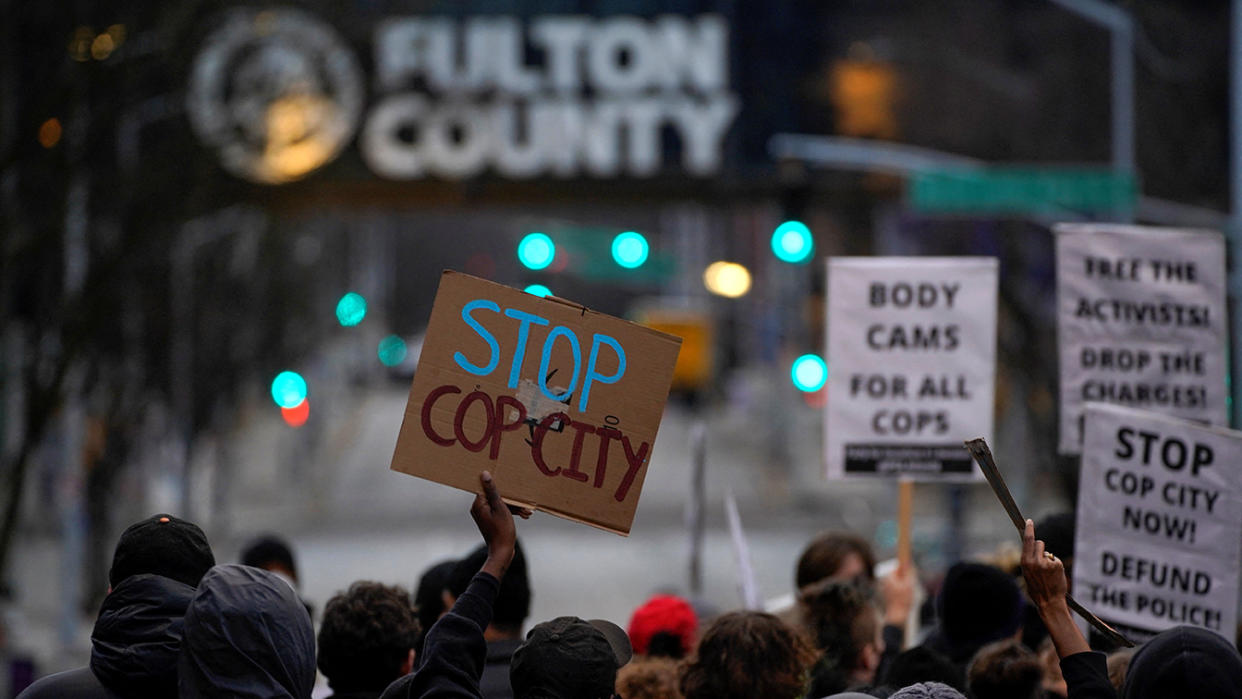
A plan to build a new training center for police and firefighters in Atlanta has put city officials on a collision course with activists opposed to its construction.
Dubbed “Cop City” by opponents, the Atlanta Public Safety Training Center is set to include a shooting range, burn tower sites and a mock city affixed with homes and streets. The 85-acre project was approved by the Atlanta City Council in 2021 and is backed by the Atlanta Police Foundation, a nonprofit largely funded by corporate donors.
Proponents of the training center say it is needed to help boost law enforcement recruitment, retention and morale in the wake of severe staffing shortages in the city. Some residents have also voiced concerns about rising crime rates in and around Atlanta, where homicides have increased in each of the last three years. They see the center as a big part of the solution to the growing problem.
For City Councilor Michael Julian Bond, who voted in favor of the plan two years ago, the center represents a necessary investment in public safety that’s been decades in the making.
“The city desperately needs new training facilities, not only for our police, but particularly for our fire department,” Bond told Yahoo News. “Currently, there is no place within the corporate limits of the city of Atlanta that our firefighters have to train, which is a result of decades of the facilities that they did have deteriorating.”
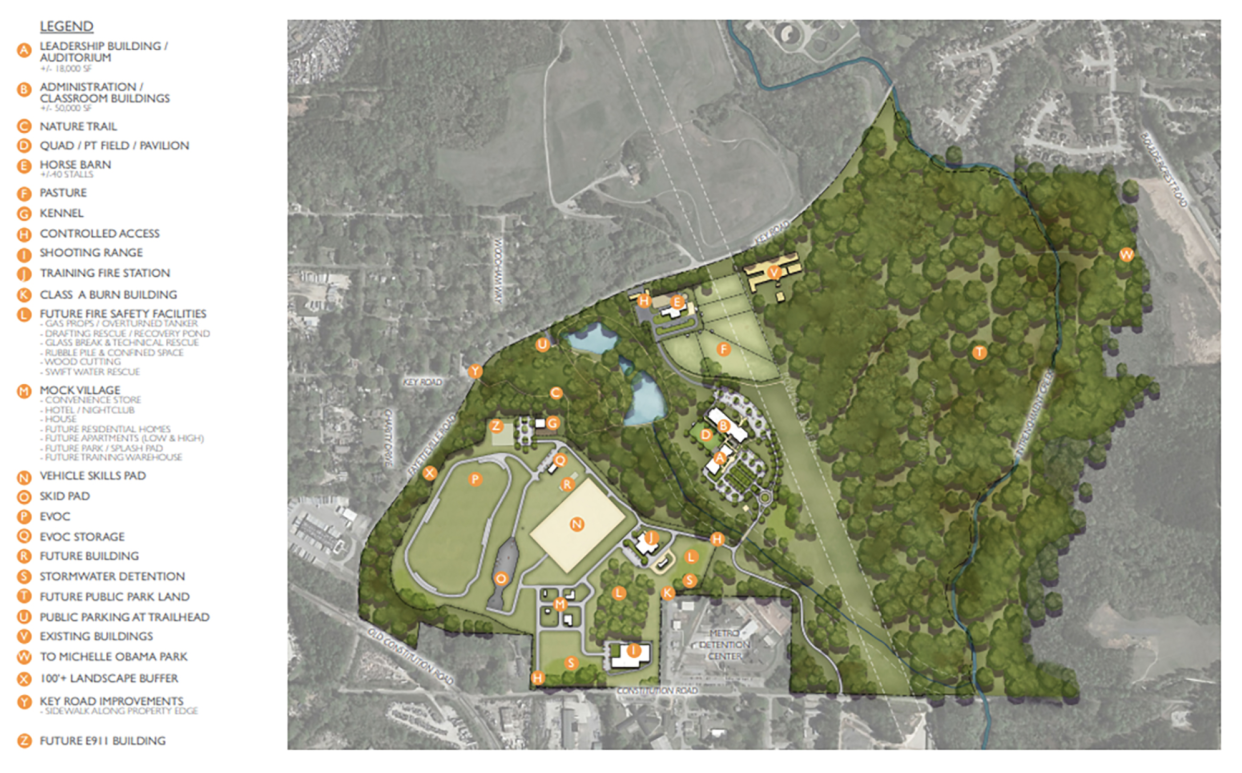
But critics say the move will harm the region’s environment, further strain community/police relations and endanger the area’s majority Black population.
“A lot of the pushback comes from Cop City representing the militarization of the Atlanta Police Department and adding to the violence that we’re seeing against Black communities in the city,” Michael Collins, senior director of government affairs at Color Of Change, a nonprofit civil rights organization, told Yahoo News. “[Atlanta officials] have prioritized law enforcement and this training facility over the concerns of the Black community.”
The issue garnered national attention last week after a “forest defender,” 26-year-old Manuel Terán, was shot and killed by police while occupying the land where the training center is set to be built. Police claim that Terán shot a state trooper first “without warning” and officers returned fire.
In the days since the shooting, protests against the center’s construction and the activist’s death have multiplied and at times turned violent. On Saturday, in the midst of a peaceful march down Peachtree Street, a handful of vandals separated from the larger group and went off to break various storefront windows and light a police car on fire.
As a result, six people were arrested and charged with domestic terrorism. All but one of them were from outside of Georgia.
“It doesn’t take a rocket scientist or an attorney to tell you that setting fires and breaking windows isn’t protest,” Atlanta Police Chief Darin Schierbaum said at a press conference that night. “It’s terrorism.”
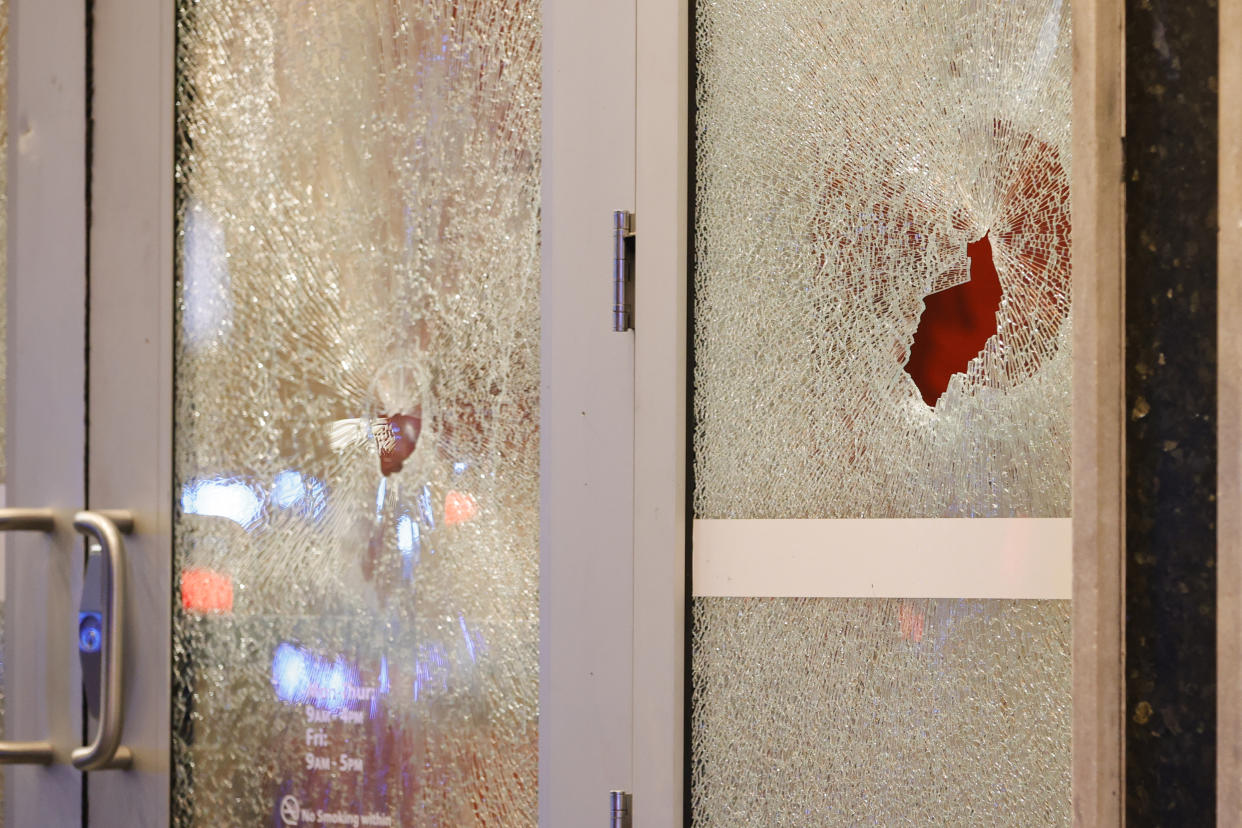
Unrest from protests in the last week has become so violent that Georgia Gov. Brian Kemp declared a state of emergency on Thursday authorizing the use of as many as 1,000 Georgia National Guard troops.
Plans for the center date back to September 2021, after the Atlanta City Council approved the ground lease for the facility by a vote of 10-4. The forest space had been slated to become the city’s largest park. But 16 months ago, the city council instead moved forward with the training facility despite concerns from the community.
A survey conducted by Social Insights in August 2021 of nearly 400 residents in the forest’s surrounding area found that 98% did not support new police and fire fighting facilities being built in the area.
“The problem with the police training center and the Atlanta forest is a classic Atlanta issue,” Doug Williams, a resident of Atlanta’s East Lake neighborhood and political activist, told the Intercept. “Those in power did what they wanted without a lot of concern for what local residents wanted. This is the Atlanta way.”
The land, which is owned by the city of Atlanta but falls just outside of the city’s limits in an unincorporated part of Dekalb County, was used as recently as the 1990s as a former prison farm where low-risk inmates could work and take care of livestock. But since then the land has been largely empty and unusedMike Spivey, who moved from Denver two years ago to a home near the proposed facility, told the local NBC affiliate that he thinks the facility would be a good thing. He said the area was quiet when the project was first approved, but he’s since noticed that more people have been camping out in the area in recent months. He also said that a neighbor moved because of several recent break-ins in the area.
“I feel like [with the facility] it will be even safer to live out here,” he told the news station. But studies have shown increased police spending doesn’t always lead to less crime.

The project is set to cost around $90 million, and taxpayers are expected to pay a third of that, or $30 million. The rest will come from private donations raised by the Atlanta Police Foundation.
According to 11Alive, the Atlanta Police Foundation’s board is “filled with executives from nearly all of Atlanta's big-name companies, like Delta, Waffle House, Home Depot, Georgia Pacific, Equifax, Carter, Accenture, Wells Fargo and UPS, among others. It reads like a who's who of corporate Atlanta.”
Representatives from Home Depot and UPS told Yahoo News that they did not donate to the construction of the training center. But for activists like Collins, the corporate support for the venture is cause for concern.
“We do not believe that corporations should be in the business of policing, yet they are massively funding local police departments,” Collins said, adding that the donations ultimately allow the companies to “get their priorities for public safety over and above individuals in the community.”
The foundation did not return Yahoo News’ request for comment.
“It's completely circumventing the democratic process,” Collins said, wary that Atlanta’s proposed training facility could become a blueprint for other cities. “There basically are conversations that are happening behind closed doors, beyond the ears of the community and beyond the oversight of politicians.”
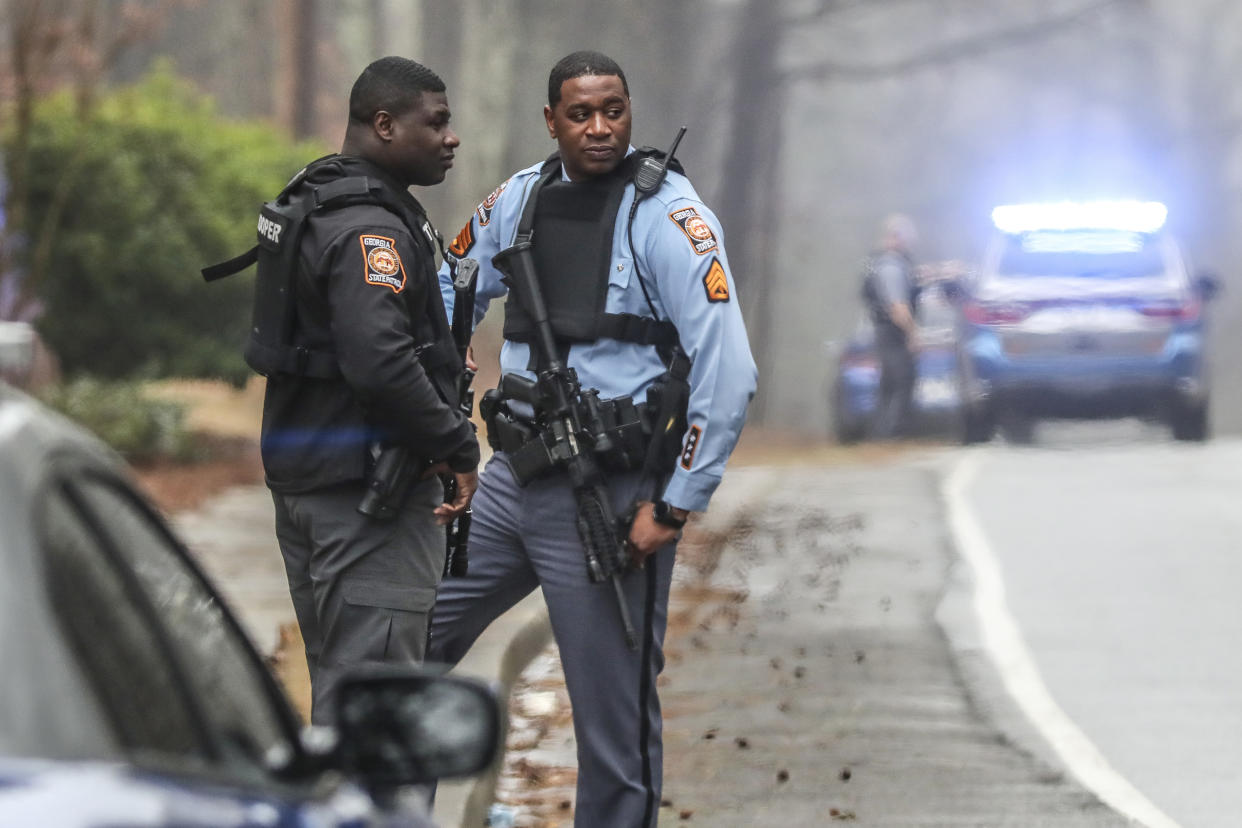
Bond, who represents 450,000 residents as one of three at-large council members, rejects the assertion that corporate donations negatively affect public safety. Otherwise, he says, the entire burden of any new project would fall squarely on taxpayers.
Bond sees the dispute over the center’s construction as something of a false divide between members of the community and law enforcement. Both groups want a safer city, he says, but might have different visions for achieving it. He adds that the further you get away from the area where the center would be located, “[most] Atlantans don’t have the same type of fervor that the activists do for the facility.”
“Throughout the crisis of the summer of activism ... there were demonstrations here, but 911 never stopped ringing,” he said. “There is a continuingly demonstrated need for police, fire and emergency services.”
Opponents of the new police center also say they’re concerned about how the construction could affect the local environment. For years, some community activists have looked to turn the former prison farmland into a recreational park. And they argue that keeping the park’s greenery will help combat climate change, as trees absorb carbon dioxide and produce oxygen, while making the area less susceptible to flooding.
Critics also say that ordnance testing could pollute the soil and water surrounding the new facility. Residents in that neighborhood already have some of the country’s highest rates of poverty, asthma and exposure to toxic chemicals, according to a White House database, and this project could make a bad situation even worse.
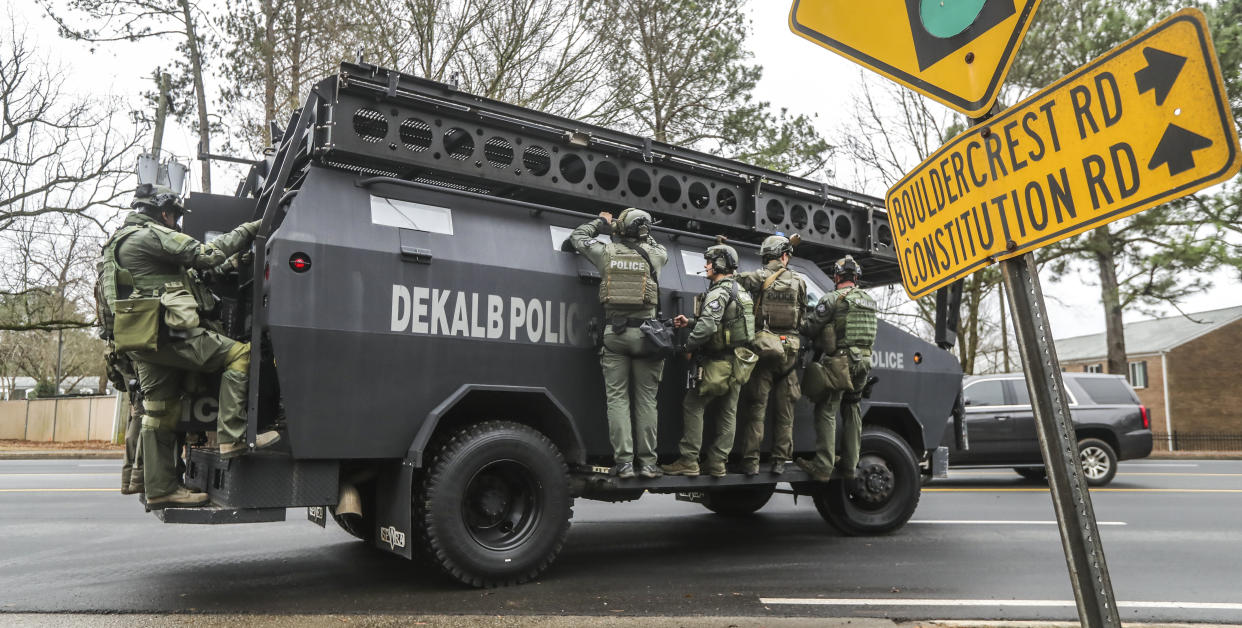
Yet opponents of the training center say they feel shut out from the conversation. Ahead of the city council’s vote in 2021, hundreds of Atlanta residents phoned into the council to voice their disapproval of the project. But that didn’t stop the council from voting in favor of the training center.
“I lost faith in the city government,” Albrica Batts, one of the hundreds of Atlanta residents that called the council in opposition, told Capital B News. “It felt like the council did not care about their constituents. It’s all about money, greed, power and corruption.”
Atlanta Mayor Andre Dickens, a Democrat, has said the activists looking to stop the project oppose “the very things that they asked for — more police training.”
“We can’t train the imaginary, we have to do it in a facility that allows for police [and] firefighters in the community to train together,” Dickens, who in 2021 as a council member voted in favor of the facility, said at a Sunday press conference.
“This is bringing about the change that we wanted to see in 2020. And now while we’re doing it, these individuals [who] don’t want to see any resources go towards that training, we’re going to develop this training center and those individuals will have to come to a halt.”
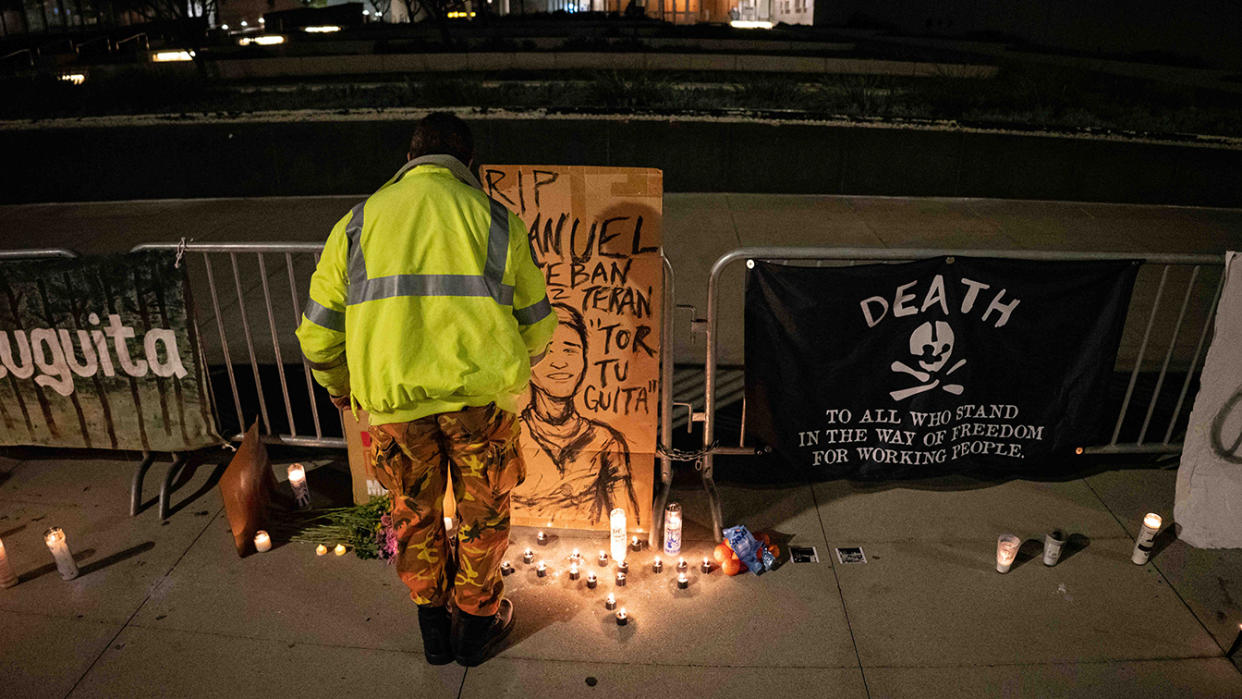
But for critics like Collins, the fight against the facility’s construction is just getting started.
“All that’s gone on with the protests will cause companies to take a second look about whether they want to be involved in the project,” he said. “I think Cop City is far from a done deal and the national interest on this will only shine a light on what have been some very shady practices on the part of police and corporations.”
_____
Cover thumbnail photos: Jack Forbes/Yahoo News; photos: Lincoln University, J. Scott Applewhite/AP Photo
